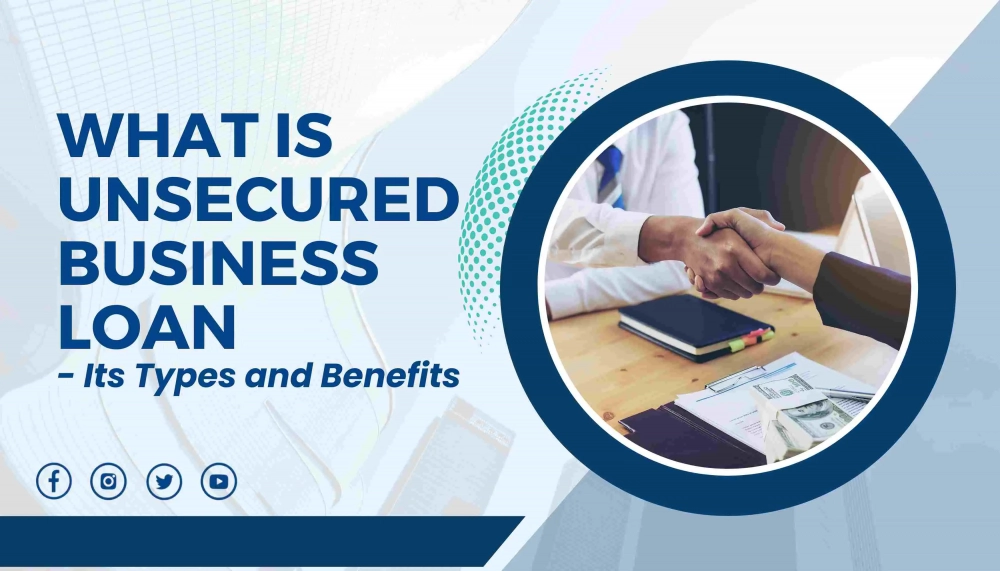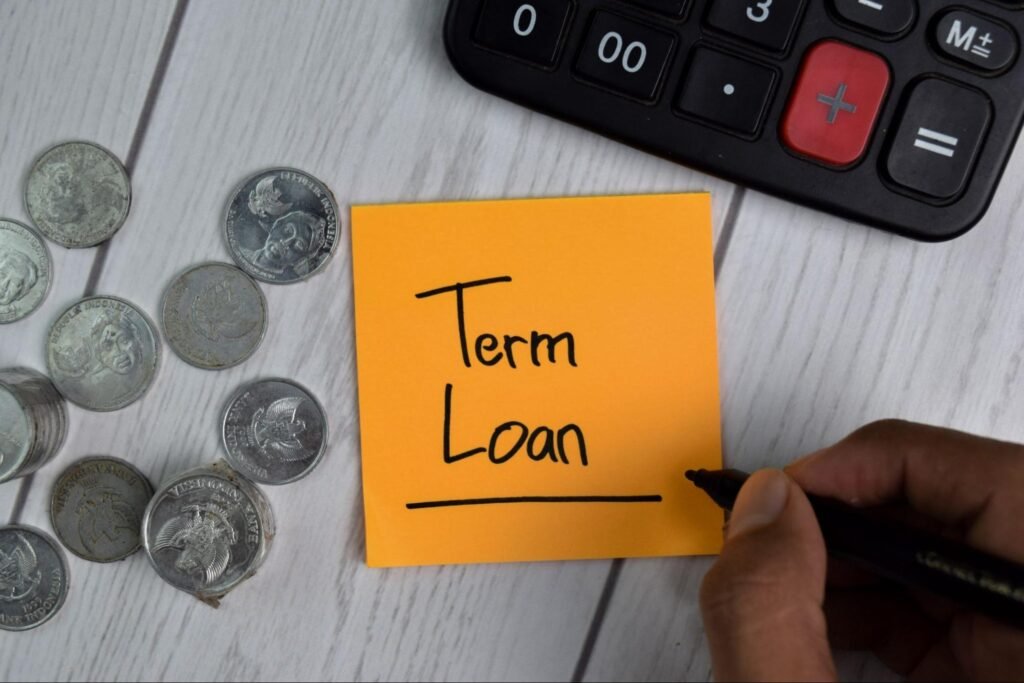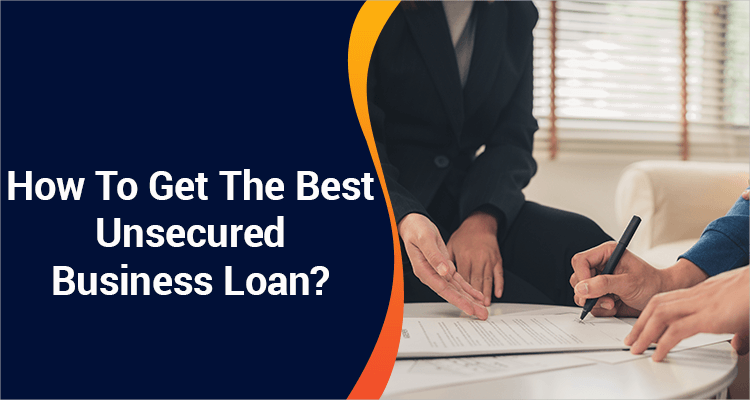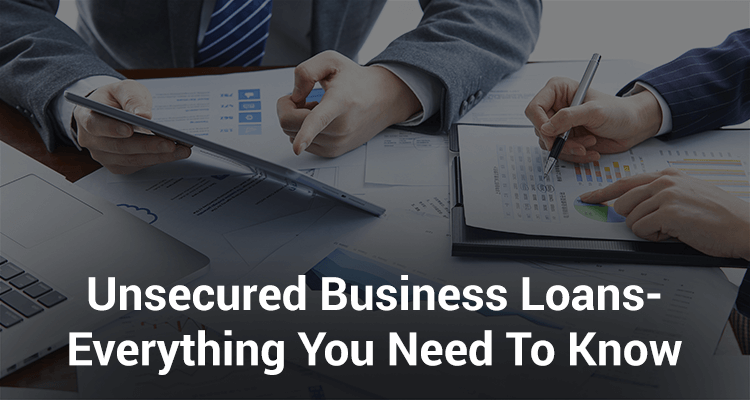Securing the right kind of financing is crucial for any business, whether you’re just starting out or expanding your operations. Business loans can provide the capital necessary to grow, but many entrepreneurs hesitate when it comes to taking on loans that require collateral. This is where unsecured business loans come into play. They allow you to access capital without the need to pledge personal or business assets as collateral. In this article, we’ll take an in-depth look at what unsecured business loans are, how they work, their advantages and disadvantages, and how you can qualify for one.
What Is an Unsecured Business Loan?

An unsecured business loan is a type of financing that does not require you to provide collateral. Unlike secured loans, where lenders ask for assets (such as property, equipment, or inventory) to secure the loan, unsecured business loans are based primarily on the financial health of the borrower and the business itself.
Since there is no collateral involved, lenders assess the risk of lending based on factors such as your business’s revenue, credit score, and overall financial stability. These loans tend to have higher interest rates than secured loans because the lender is taking on more risk.
How Do Unsecured Business Loans Work?
Unsecured business loans are typically offered by banks, credit unions, online lenders, and other financial institutions. The approval process for these loans can be faster than for secured loans, as there is no need to evaluate collateral. However, the interest rates tend to be higher because the lender’s risk is greater.
The loan amount, repayment terms, and interest rates vary depending on the lender, the borrower’s creditworthiness, and the nature of the business. Unsecured loans generally have shorter repayment periods compared to secured loans, and they can be either short-term or long-term, depending on the agreement.
Types of Unsecured Business Loans
There are several types of unsecured business loans, each suited for different needs. Here are some of the most common types:
Term Loans

Term loans are a common form of unsecured business loan. These loans provide a lump sum amount that is paid back over a set period with regular installments. The loan can be used for various purposes, including purchasing equipment, expanding the business, or managing cash flow. The terms of the loan will vary depending on the lender and the borrower’s financial health.
Business Lines of Credit
A business line of credit is a flexible form of unsecured financing. With a line of credit, you are approved for a maximum credit limit, and you can borrow money as needed, up to that limit. You only pay interest on the amount you borrow, making it an ideal option for managing cash flow fluctuations.
Invoice Financing
Invoice financing, also known as accounts receivable financing, allows businesses to borrow against outstanding invoices. It’s a type of short-term loan where the lender advances you a portion of the value of your unpaid invoices, which you pay back once your customers settle their bills. It’s a great option for businesses that have slow-paying clients.
Merchant Cash Advances
A merchant cash advance (MCA) is a type of unsecured loan where the lender provides you with a lump sum based on your future credit card sales. The lender then collects a percentage of your daily sales until the loan is paid off. While this can be a quick way to get funding, MCAs often come with high fees and interest rates.
Benefits of Unsecured Business Loans
There are several advantages to opting for an unsecured business loan, especially for businesses that may not have significant assets to offer as collateral.
No Collateral Required
The most obvious benefit of an unsecured business loan is that you don’t need to put up any assets as collateral. This means your personal and business property are not at risk if you fail to repay the loan.
Quick and Easy Application Process
Since there is no need to assess collateral, the application process for an unsecured business loan is usually faster and more straightforward. Many lenders offer online applications that can be completed in minutes, with approval decisions made in as little as 24 hours.
Flexible Use of Funds
Unsecured business loans provide flexibility in how you use the funds. Whether you need money for equipment, marketing, or covering operational expenses, the loan can be used for a variety of purposes without restriction.
Lower Risk to Your Assets
Because there is no collateral, you won’t have to risk losing your home, vehicles, or other assets if your business encounters financial difficulties. This provides peace of mind, especially for entrepreneurs who rely heavily on their personal property.
Disadvantages of Unsecured Business Loans
While unsecured business loans offer several benefits, they also come with certain disadvantages that should be considered before applying.
Higher Interest Rates
Since unsecured loans don’t have collateral backing them, lenders charge higher interest rates to compensate for the increased risk. The interest rates can vary widely based on your business’s creditworthiness, but they are generally higher than those for secured loans.
Shorter Repayment Terms
Unsecured loans typically have shorter repayment periods, which means your monthly payments will be higher. This can place a strain on your cash flow, especially if your business is still in its early stages or facing financial challenges.
Stricter Eligibility Criteria
While unsecured business loans don’t require collateral, lenders still have stringent eligibility criteria. Your credit score, business revenue, and financial history will play a significant role in your approval. If your business is new or has a limited credit history, it may be more difficult to qualify for an unsecured loan.
Lower Loan Amounts
Due to the lack of collateral, unsecured business loans tend to offer lower loan amounts compared to secured loans. If you need a larger sum for expansion or equipment, you may find that unsecured loans won’t provide enough capital.
How to Qualify for an Unsecured Business Loan

Qualifying for an unsecured business loan involves demonstrating to lenders that your business is financially stable and capable of repaying the loan. Here are some of the key factors that lenders will consider:
Credit Score
Your personal and business credit scores are crucial in determining your eligibility for an unsecured business loan. A higher credit score shows that you have a history of managing debt responsibly and are less likely to default on the loan.
Revenue and Cash Flow
Lenders will assess your business’s revenue and cash flow to determine whether you have the financial capacity to repay the loan. Businesses with strong, consistent revenue are more likely to be approved.
Time in Business
Lenders generally prefer businesses that have been operating for at least a year. New businesses may face more challenges in securing unsecured financing because they have little to no business history.
Debt-to-Income Ratio
Your debt-to-income ratio, which measures how much of your income goes toward servicing debt, will be closely scrutinized by lenders. A lower ratio indicates that your business is less risky to lend to.
Also Read : What Are The Requirements For A Home Loan?
Conclusion
Unsecured business loans provide an excellent opportunity for businesses that need quick financing without the risk of losing assets. While they come with higher interest rates and stricter eligibility requirements, they offer flexibility and faster approval times. If you are considering an unsecured business loan, it’s essential to assess your business’s financial health and determine if it’s the right solution for your needs.
FAQs
1. What is the difference between a secured and unsecured business loan?
A secured loan requires collateral (assets like property or equipment) to back the loan, whereas an unsecured loan does not. Unsecured loans are based on the business’s creditworthiness and financial health.
2. Can I get an unsecured business loan with bad credit?
It may be more difficult to get an unsecured business loan with bad credit, but it’s still possible. Some lenders may offer loans to businesses with lower credit scores, though you may face higher interest rates.
3. How much can I borrow with an unsecured business loan?
The amount you can borrow depends on factors like your credit score, business revenue, and financial history. Unsecured loans typically offer smaller amounts compared to secured loans.
4. How long does it take to get approved for an unsecured business loan?
Approval times vary depending on the lender, but unsecured business loans can often be approved in as little as 24 hours, especially if you apply online.
5. Can I use an unsecured business loan for anything?
Yes, unsecured business loans are flexible and can be used for various purposes, including paying for equipment, inventory, marketing, or working capital.







